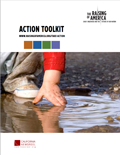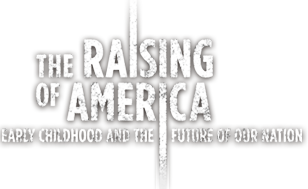Menu
Avoiding Conversation Pitfalls
They sound something like this...
We’re preaching to the choir. What we really need is to convince others…
When staffers immediately focus on how to persuade others, they miss a valuable opportunity to explore what it would mean to their own practice if they took a systems-based approach.
How are they affected as parents and children themselves, and not just in their role as service providers or advocates? How can they make the greatest impact in their current role? For example, parents receive informational pamphlets from their pediatricians, what if pediatricians also informed parents about local initiatives designed to improve community conditions?
How can child advocates, a core constituency for change have had the time or the training to connect the dots between child outcomes, social injustices and the future health, prosperity and equity of the nation?
We need to talk about parental responsibility…
Actually, we don’t, other than to acknowledge it. Not at this event at any rate. Ask most parents and they will tell you the information available about how to parent is exhaustive (even if not always effective). From pamphlets, magazines, books, the web, and the growing number of parent education and training programs, the ‘how-to parent’ conversation is covered.
What’s not yet been addressed is how, as economist Robert Dugger says in The Raising of America, “Our policies actually actively discourage parents from being able to take care of their children when they’re very young.” It’s not just that being a parent can be hard—just as it can be incredibly rewarding—it’s that U.S. policies and lack-there-of actually make it harder for parents to do a good job.
This is about low-income families, especially low-income families of color…
Yes, the data are clear that those exposed to the most threats to their well-being are children of low-income families, especially low-income families of color who are further burdened by the additional stressors of racism. But too often this statement implies that middle-income families and white families are immune to our lack of family-friendly policies. But many middle class and even affluent kids aren‘t doing as well as they could be.
Middle class families lead an increasingly precarious existence, squeezed for time, for money and for resources. Studies show that these stressors on parents can literally get “under the skin” of their young children, altering their emotional, intellectual and social development as they grow up— even if parents no longer feel stressed.
Let’s ask middle class parents: What would your life look like if quality childcare was $200/month? If you could take a paid year of time to be at home with your new child? If you could work flexible schedules, take four weeks paid holidays and vacations a year, and still advance in their career. Other rich countries guarantee these policies by law. They do so because it’s not just about low-income families or families of color. It’s about all of us—and the nation’s future.
Government just messes things up…
Government actions are usually welcomed or dismissed as ‘good’ or ‘bad.’ But isn’t the real question who government is held accountable to? Too often government is captured by corporate and monied interests. But the Civil Rights, Women’s Rights and Gay/Lesbian Rights movements indicate the power of countervailing social movements to shape government priorities and policies. But holding government accountable is a continual process, not something that happens just once. Ending child labor, the 8-hour work-day—these didn’t just spring out of the ground.
These outcomes were the result of many small and big—but always intentional—efforts to make change, that no matter the bumps and defeats on the journey to “keep one’s eyes on the prize.” Let’s make it clear to all parents that it doesn’t have to be this hard, that advocating for family-friendly policies can be a chapter in one of your favorite parenting books.
Ultimately, the struggle is over what should be public goods or a private commodity. In the U.S, we’ve decided that a K-12 education is a public good, available to all. But with some notable exceptions, early care is treated as a commodity to be purchased in the market.

ACTION TOOLKIT
- Eight Ways to Use the Series to Advance Your Work
- Six Elements of a New Conversation
- Planning a Successful Screening


